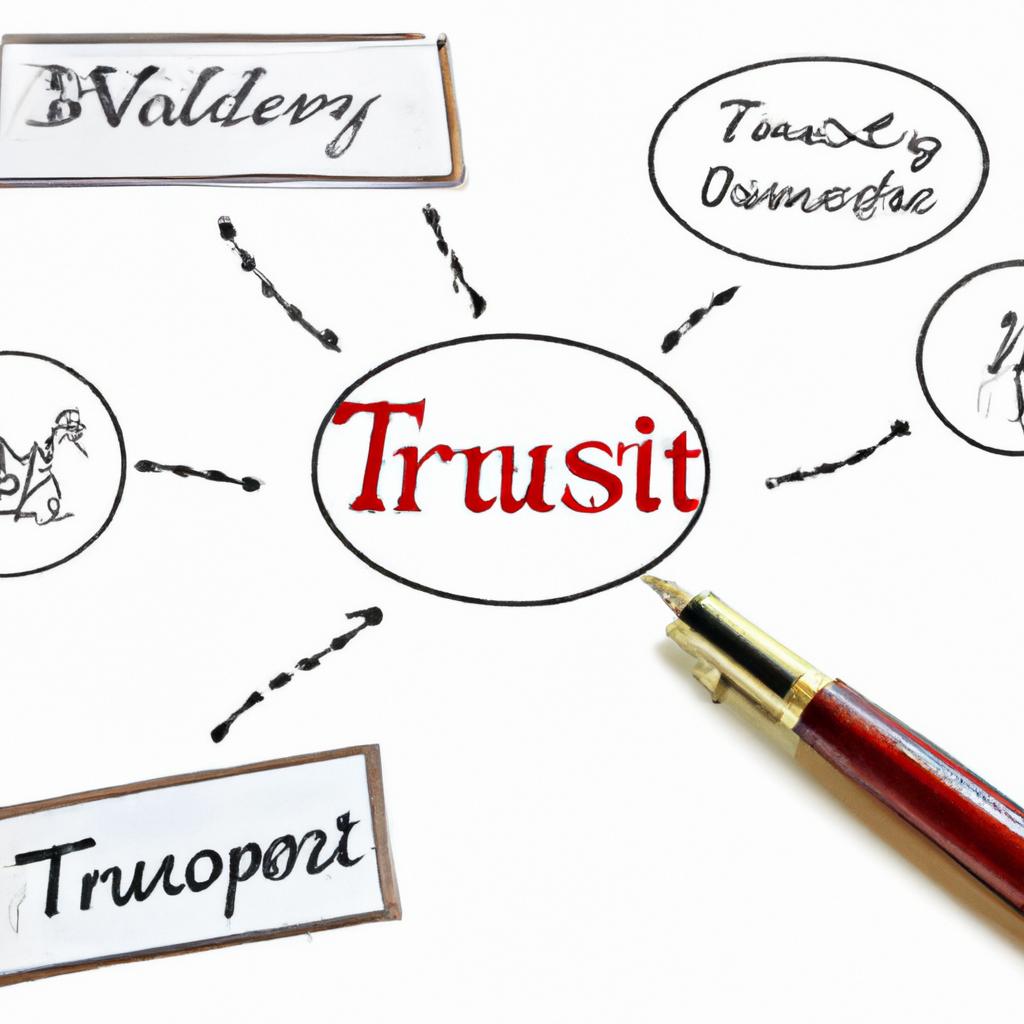In the intricate realm of estate planning and asset management, the term “trust estate” holds significant weight and importance. As seasoned practitioners in the field of law, we at Morgan Legal Group, based in the bustling metropolis of New York City, deem it necessary to delve into the nuanced intricacies of this concept. Join us as we unravel the complexities of trust estate and decipher its implications in the realm of legal and financial planning.
Understanding the Legal Framework of Trust Estate
Trust estate is a legal entity created to hold assets on behalf of a beneficiary. It is a common tool used in estate planning to ensure that assets are managed and distributed according to the wishes of the individual who created the trust, known as the grantor or settlor. Trust estate can be revocable or irrevocable, with different implications for the grantor and beneficiaries.
is crucial for anyone looking to protect their assets and provide for their loved ones. By working with a knowledgeable estate planning attorney, individuals can create a trust estate that aligns with their goals and values. Trust estate can offer benefits such as asset protection, avoiding probate, and maintaining privacy. To learn more about how trust estate can benefit you and your family, contact Morgan Legal Group in New York City for personalized guidance and support.

Key Components of a Trust Estate
Trust estate refers to the assets held in a trust for the benefit of designated beneficiaries. These assets are managed by a trustee, who has a fiduciary duty to administer the trust according to the terms set forth in the trust document. The include:
- Trust Document: This legal document outlines the terms and conditions of the trust, including the identities of the settlor, trustee, and beneficiaries, as well as the distribution of assets.
- Trustee: The individual or entity responsible for managing the trust estate and carrying out the wishes of the settlor. The trustee must act in the best interests of the beneficiaries and adhere to the trust document.
- Beneficiaries: The individuals or entities designated to receive the benefits of the trust estate. Beneficiaries may include family members, friends, charities, or other organizations.
In addition to these key components, a trust estate may also include various types of assets, such as real estate, investments, personal property, or business interests. It is important to work with an experienced estate planning attorney to create a trust that meets your specific needs and goals, and to ensure that your trust estate is properly managed and distributed according to your wishes. Morgan Legal Group can help you navigate the complexities of trust planning and administration in New York City.
Benefits of Establishing a Trust Estate for Estate Planning
Trust estate refers to a legal entity that holds assets on behalf of beneficiaries. Setting up a trust estate can be a valuable tool in estate planning, providing numerous benefits to the grantor and their heirs. One key advantage of establishing a trust estate is the ability to avoid probate, which can be a lengthy and costly process. By placing assets in a trust, the grantor can ensure that they are distributed according to their wishes without the need for court intervention.
Another benefit of a trust estate is the ability to maintain privacy. Unlike wills, which become public record upon probate, trusts allow for the confidential transfer of assets to beneficiaries. Additionally, trusts can provide protection from creditors and potential lawsuits, as assets held in a trust are not typically subject to claims against the grantor. Overall, establishing a trust estate can offer peace of mind and security for both the grantor and their loved ones.

Guidelines for Establishing and Managing a Trust Estate
When it comes to establishing and managing a trust estate, it is essential to understand the complex legal implications involved in this process. A trust estate refers to the assets held in a trust for the benefit of beneficiaries. These assets can include properties, investments, cash, and other valuable possessions. Trust estates are managed by trustees who have a fiduciary duty to act in the best interests of the beneficiaries.
There are several guidelines to consider when establishing and managing a trust estate. Firstly, it is crucial to clearly outline the terms of the trust in a trust agreement. This document should specify the beneficiaries, the assets included in the trust estate, the distribution instructions, and the powers and responsibilities of the trustee. Additionally, trustees must adhere to strict legal and ethical standards, such as avoiding conflicts of interest and keeping accurate records of all trust transactions. Proper communication with beneficiaries and thorough asset management are also key aspects of effectively managing a trust estate.
Q&A
Q: What does trust estate mean?
A: Trust estate refers to assets held in a trust for the benefit of one or more individuals.
Q: How is a trust estate different from a regular estate?
A: A trust estate is managed by a trustee according to specific guidelines outlined in a trust agreement, while a regular estate is typically distributed according to a will.
Q: Who can benefit from a trust estate?
A: Beneficiaries of a trust estate can include family members, friends, charities, or even pets.
Q: What are the advantages of a trust estate?
A: Trust estates can provide tax benefits, asset protection, and the ability to bypass probate court.
Q: What happens to a trust estate when the beneficiary passes away?
A: The assets in a trust estate can be distributed to secondary beneficiaries or charities as specified in the trust agreement.
Final Thoughts
As we wrap up our exploration of what trust estate means, it is clear that this legal concept plays a crucial role in estate planning and asset protection. Understanding the fundamentals of trust estate can provide individuals with the knowledge and tools needed to make informed decisions about their financial future. Whether you are considering establishing a trust or are a beneficiary of one, being well-informed about trust estate can help you navigate this complex area of law with confidence. Stay tuned for more insightful articles on estate planning and legal matters. Thank you for reading!


